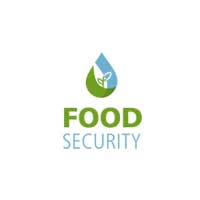Understanding plant-microbe interactions for sustainable food security
Symposium on March 22nd, 2023 at the Center for Molecular Medicine Cologne
Plant diseases are a serious threat to food security. Worldwide pathogens and pests reduce a significant amount of yield and quality of agricultural products. In the future it is expected that global climate change will intensify the damage to plant health thereby increasing food insecurity. In order to safeguard food security, we need to understand underlying processes of plant microbe interaction and the role of the microbes that life in close association to plants.
This event aims at reinforcing the importance of fundamental plant-microbe research for sustainable food security.
We are happy about your participation and looking forward to the symposium.
Registration:
To register to the symposium, send an email to food-securityuni-koeln.de with the subject “Registration to PMI for sustainable food Security”, including your name and affiliation.
Registration deadline is March 17th, 2023.
The symposium is free of charge.
Call for short talks
We accept scientific abstracts for your presentations. Abstracts should be submitted and presented in English. It should include a title, the author(s) and affiliations and the abstract text (approximately 200 – 300 words), submitted in a pdf file. Please do not forget to emphasize the importance of your research project for sustainable food security.
Please choose the session in which you would like to present your topic
- Session 1: Resilient Crops support Food Security
- Session 2: Beneficial Roles of Microbes for Sustainable Food Security
Abstract submission deadline is March 1st, 2023.
Successful applicants will be notified by March 8th, 2023.
Please submit your abstract together with your registration via email to food-securityuni-koeln.de
Programme
8:30 | Registration |
9:00 | Welcome Words Prof Stanislav Kopriva, Speaker of the Competence Area Food Security, University of Cologne Dr Dorit Grunewald, Coordinator of the Competence Area Food Security, University of Cologne |
|
|
9:10 – 12:00 | Session 1: Resilient Crops support Food Security Chair: Dr Johana Misas, University of Cologne
|
09:10 | Prof Wenbo Ma, The Sainsbury Laboratory, Norwich “Defense and counter-defense in plant-pathogen interactions”
|
09:55 | Dr Alexander Förderer, Max-Planck Institute for Plant Breeding Research, Cologne “A wheat resistosome defines common principles of immune receptor channels”
|
10:25 | Dr Georgios Saridis, University of Cologne “Temporal regulation of the effectome in smut fungi”
|
10:40 | Qiaochu Shen, University of Cologne “How the activation of plant mixed lineage kinase domain-like proteins (MLKLs) is translated into effective plant protection?”
|
10:55 | Coffee Break |
11:15 | Inside Story Prof Wolf B. Frommer, "Healthy Crops", Heinrich Heine University, Düsseldorf “From the field to the lab and back to the field - some science, but also a lot else before the farmers get the seeds”
|
12:00 | End Session 1 |
|
|
12:00 | Lunch |
|
|
13:00 – 15:00 | Session 2: Beneficial Roles of Microbes for Sustainable Food Security Chair: Hanna Rövenich, University of Cologne
|
13:00 | Dr Ronnie de Jonge, Utrecht University, Netherlands “Identification of the conserved iol gene cluster involved in rhizosphere competence in Pseudomonas”
|
13:45 | Lisa Mahdi, University of Cologne “Characterization of the mechanisms underlying plant-microbe multipartite interactions”
|
14:00 | Zara Sorger, University of Cologne “Mechanisms of basidiomycete yeast function in complex leaf microbial communities”
|
14:15 | Dr Fantin Mesny, University of Cologne “Fungi with high pathogenic potential dominate in healthy plant mycobiomes”
|
14:30 | Dr Isabelle Schiffer, Gateway Exzellenz Start-up Center, University of Cologne Isabelle Metzen, University of Cologne "From Science to Solutions - The importance of fundamental plant-microbe research to open new ways towards sustainable food security" |
14:45 | Closing Remarks Prof Stanislav Kopriva, University of Cologne |
15:00 | End Session 2 |
|
|
15:00 - 16:00 | Coffee, Cake and Networking |
Symposium Venue
The Symposium will take place at the Center for Molecular Medicine Cologne
Adress:
CMMC Research Center, Robert-Koch-Str. 21, 50931 Cologne,Germany
Arriving by train and using public transportation
From Cologne Messe/Deutz take tram (underground) no. 9 (direction "Sülz") and get off at the stop "Weyertal”. Walk in the direction of travel, turn right onto “Robert-Koch-Str.” and walk straight ahead. The CMMC Research Center, Robert-Koch-Str. 21, 50931 Cologne, is located on the left side (approx. 18 minutes).
From Cologne Central Station take either subway no. 16 (direction "Sürth", "Bonn / Bad Godesberg") or subway no. 18 (direction "Klettenbergpark", "Brühl") to "Neumarkt" station. You will arrive below street level and need to take the steps/escalator up to street level to change to tram no. 9 (direction "Sülz"). Get off at the stop "Weyertal”. Walk in the direction of travel, turn right onto “Robert-Koch-Str.” and walk straight ahead. The CMMC Research Center, Robert-Koch-Str. 21, 50931 Cologne, is located on the left side (approx. 18 minutes).
Organising Committee
- Stanislav Kopriva
Speaker Competence Area Food Security, Institute for Plant Sciences, University of Cologne
Deputy Speaker Cluster of Excellence on Plant Sciences (CEPLAS)
- Johana Misas
Institute for Plant Sciences, University of Cologne
- Hanna Rövenich
Institute for Plant Sciences, University of Cologne
- Dorit Grunewald
Coordinator Competence Area Food Security, Institute for Plant Sciences, University of Cologne
Administrative Support
Elke Henn
Institute for Plant Sciences, University of Cologne
